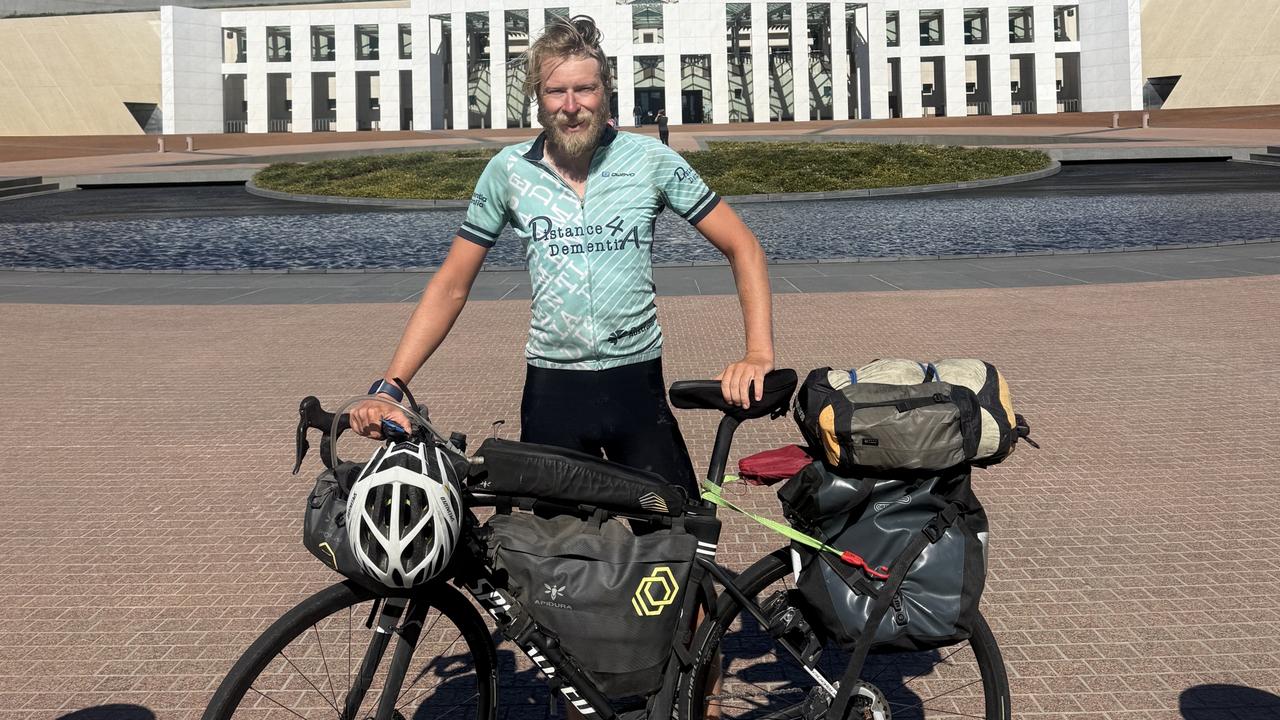Darwin private maternity ward closure: ‘Sad’ day for staff, patients but RDH is ‘prepared’
Healthscope staff acknowledge the closure as an emotional day for staff and Darwin community but the Health Minister assures families RDH is prepared.
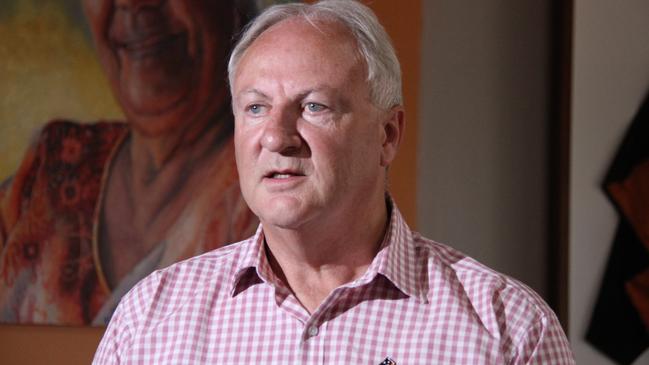
News
Don't miss out on the headlines from News. Followed categories will be added to My News.
June 6 marks the closing of the private maternity ward at Darwin Private Hospital and the care of 61 mums and their families being transferred to Royal Darwin Hospital (RDH).
Since the financially troubled private hospital operator Healthscope announced the closure of the ward in February, NT Health and private insurers have been working to provide impacted families with options.
Healthscope’s NT Manager, Matt Tallis, said it was an emotional day for the hospital team and community.
“Our maternity team, obstetricians and paediatricians have provided wonderful care and support to thousands of NT families over many years which we are very grateful for and the legacy they leave on the NT community” he said.
“This is sad day for all and we also acknowledge the distress this decision has caused in the wider community.
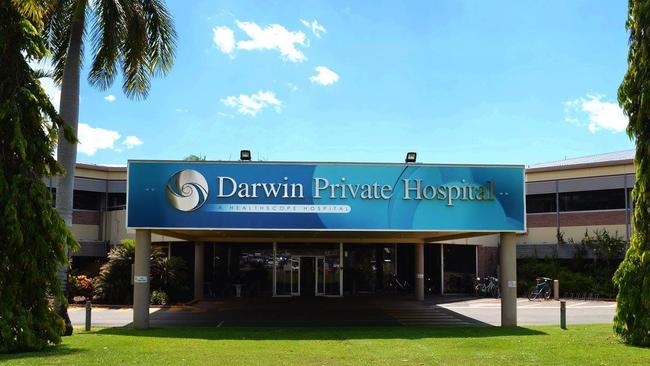
“We never want to be in a position where we need to consider closing a service.
“I want to thank the NT Government for their support and collaboration as we’ve worked through this challenging time.”
He added Healthscope remains committed to working with relevant parties to ensure a smooth transition.
From now, private patients will have their births at RDH and have access to two post-natal care packages.
In a statement on Thursday, Health Minister Steve Edgington confirmed families would have the option of having their private OB at the delivery and that nine families have already chosen to use the private post-natal packages.
These include a go-home-sooner package or a four-night hotel retreat.
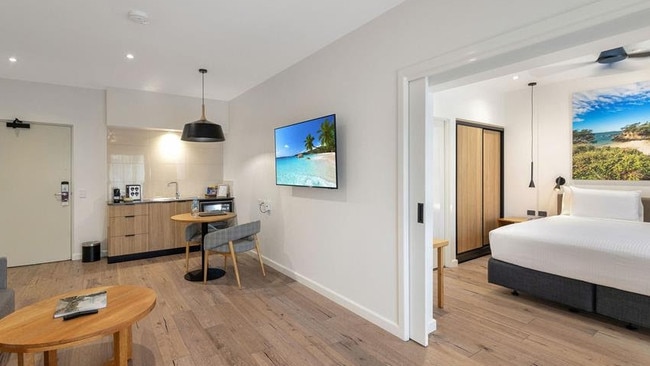
Despite receiving safety concerns from mums and private OBs on the practicality of the hotel retreat, the option will be operational and available for mums and newborns who have been assessed as low-risk and deemed safe to leave hospital.
Mr Edgington said RDH was “equipped” and the maternity support team are prepared to provide safe and “compassionate” care to the 61 mums due to give birth in the next few months.
But some of those impacted remain unsure about the practicality of the model, the price of the packages and the capacity issues at RDH.
Edgington: RDH and packages ready to provide “safe and supportive” care
Mr Edgington said RDH was well-prepared to accept and support the new patients.
“The hospital is equipped, and our midwives and broader maternity support team are prepared and ready to provide high-quality, compassionate care for these expectant mums.”

So far, six families have opted for the hotel retreat and three have chosen the go-home-sooner package, with more still working through options.
“Although these new options do not replicate the model at Darwin Private Hospital, they provide a comprehensive, safe, and supportive maternity experience for private patients,” Mr Edgington said.
“Our priority has always been to reassure expectant families that safe, supportive, and positive care will continue to be provided throughout the critical transition to Royal Darwin Hospital.
“New mothers will be able to access the new maternity packages once they have been discharged from Royal Darwin Hospital.
“This will only occur when it is clinically safe to do so, and this applies whether mothers are going home or accessing the hotel package.
“As part of the private packages, 24/7 phone support will be provided, and new parents will be able to contact their private obstetrician by phone at any time. Safety remains our top priority.”
In May, Mr Edgington said he had requested $35m in federal funding to help the NT Government make “some modifications” to RDH’s maternity ward.
When asked if this application had been successful, an NT Government spokesperon said “discussions are ongoing between the Northern Territory Government and Australian Government”.
A spokesperson for NT Health said that the downstairs birthing ward in RDH will continue to be operational for women with a normal risk pregnancy and is reviewing the models of care to possible extend its use.
Addressing the rise in impacted families from 45 to 61 and accessibility of the packages, an NT Healthscope spokeswoman said: “Healthscope initially informed NT Health in February that there would be 45 expectant families impacted.
“NT Health is now aware of 61 expectant mothers who are due to give birth between June and September and is working closely with them to provide support and care.
“Packages are accessible to women regardless of their level of risk.
“They are provided once it is clinically safe for the woman and her baby to be discharged from the hospital to their home or to a hotel, according to their preference.
“Ongoing clinical care and support will be provided by the RDH domiciliary service, along with after-hours midwifery support for private patients via telephone.”
They said this would remain in place while a tender process for Privately Practicing Midwives is ongoing.

Mums still concerned about capacity at RDH
Tessa Czislowski is a few weeks away from giving birth to her second baby.
As her first baby was born in the private hospital, this will be her first time using the services at RDH.
Tessa is one of patients deemed as low-risk. As such, she is able to make use of the one of the post-natal packages.
She said she and her husband have chosen the hotel retreat but only as it is much closer to the hospital than their home.
“The main reason we’re choosing that option is because of its proximity to the hospital,” she said.
“We have to make an election about which package we want on or before admission which is counter intuitive given you don’t know how your birth will go, how long you will need to stay, whether baby will need to go to the NICU etc.”
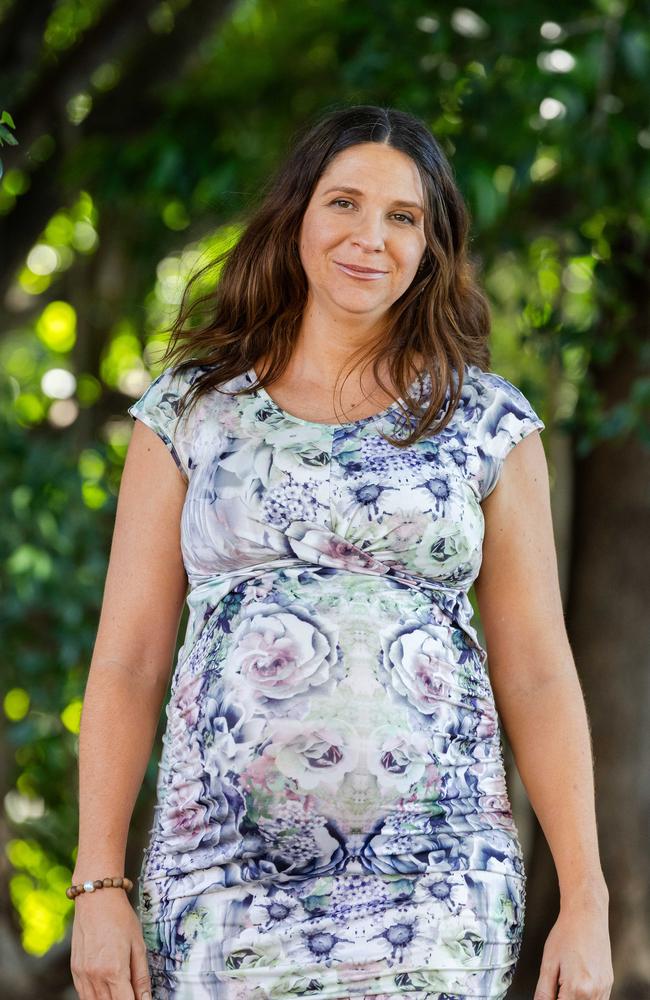
The length of the after-care at hotel retreat also depends on how long patients stay in hospital after giving birth. Tessa said if a lengthened hospital stay means the hotel option gets shortened to one or two nights it becomes less attractive and helpful to new parents.
While she said the staff at RDH are “wonderful”, the last few months of announcements and changes to private patient’s care, had been distressing and draining.
“I’ve got lots of people that have had their babies at RDH and have nothing but good things to say, but I also know they are incredibly under resourced and incredibly under a significant amount of pressure,” she said.
“So you cannot expect the same quality of support in the public system.
“You’re not going to get the same level of that continuity of care.”
RDH staffer: ‘I don’t want my colleagues to see me labouring in a waiting room chair’
Another Territorian mum who works at RDH echoed these concerns.
The staffer, who wished to remain anonymous, is well aware of the pressures being experienced on the sixth floor maternity ward.

While she has not heard of any women giving birth in the corridors, colleagues have said it has been close at times.
“I know they are really struggling with lack of staff and that’s been an issue for a few years so that is really impacting on the privacy of labor for people,” she said.
“They struggle with the room space and so there’s lots of people laboring until very close to delivery in the waiting area.
“They’ve always been able to move them at the last minute before delivery.”
The staffer said this is a very public situation to be in, let alone with colleagues witnessing it.
“A lot of people are laboring in chairs while they’re waiting for a room to be available,” she said.
“That’s a very public situation in your own workplace and really vulnerable time of your life when you’re in pain and that’s not exactly what you want to be doing in view of the people you work with.”
The mum, who has had complications during other pregnancies, said she did not have concerns about the level of care she would receive at RDH, but had chosen to go private in the past in order to separate her work and personal life.
She will now no longer have that choice.
Instead of focusing on the after-care models, she asked why NT Health could not consider giving more options for mums giving birth.
“I don’t know if I would have necessarily have stayed here if I’d had to have all my children in the public and feel like that I had no separation from work and personal life,” she said.




